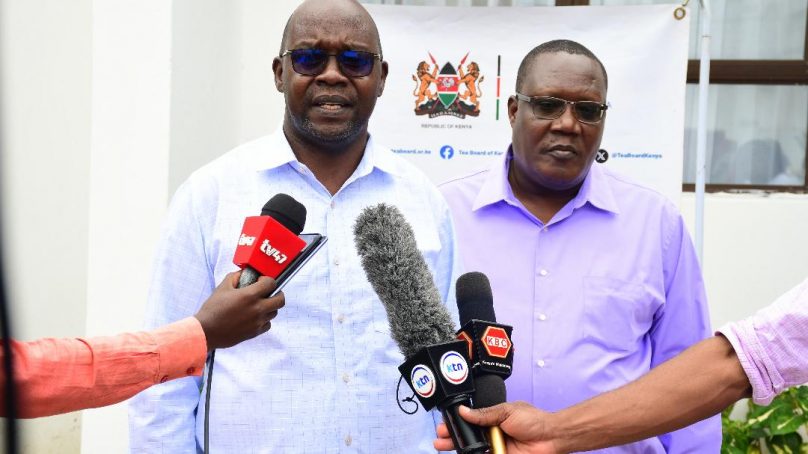
Small-scale tea farmers have been urged to enhance the quality of their tea to attract more markets and increase their earnings.
Tea Board of Kenya (TBK) CEO Willy Mutai, speaking in Mombasa during a tea stakeholders’ consultative meeting, described the findings of a Tea Quality Validation Report as impressive and praised farmers for improving tea quality.
A total of 210 samples of prime and primary grades were analysed from small-scale tea factories managed by the Kenya Tea Development Agency Limited (KTDA).
While notable improvements were observed in the leaf quality, farmers were encouraged to address identified gaps.
“The only challenge that gives us some small issues that we have to address is the manufacturing side. We need to go back to the factories to have more tea makers understand that tea sells based on the leaf appearance. If it’s plucked, it sells, again, liquor and infusion are some of the issues. When it sums up, it attracts the price,” stated the CEO.
The exercise aimed to encourage farmers to focus more on quality to attract higher prices for their tea. Mutai emphasised the need for concerted efforts among tea industry players to further enhance quality.
“We need to put in more effort so we can realise better prices in the auction,” he said, adding that prices in the auction are going up.
The TBK CEO also called on Mombasa County to consider reducing the Ksh7,000 charges imposed on trucks, terming them costly to farmers. He highlighted that nearly 400,000 truck trips are made annually from upcountry to Mombasa.
“It is a huge cost to the farmer. For every 21,000 kilograms ferried to Mombasa, the farmer loses about Ksh0.5 from their bonus,” said Mutai.
East Africa Tea Trade Association (EATTA) Managing Director George Omuga noted that tea from 10 African countries: Kenya, Uganda, Burundi, Rwanda, Tanzania, Mozambique, Malawi, the Democratic Republic of the Congo and Ethiopia, is sold at the auction, and that tea quality remains one of the key factors influencing prices.
Omuga further revealed that five judges across the value chain conducted a brand tasting of the teas through a sensory evaluation process.
“The results are out, and it is very evident that the quality of raw materials from the farm has a direct influence on the cup quality and other tea parameters,” he said.
He added that other factors affecting tea prices in the auction are the economic and geopolitical situation of the importing countries.
“When they are not stable, like currently, the Middle East is not stable, we have issues with the Red Sea, war between Russia and Ukraine, and other geopolitical factors directly affect the prices at the Mombasa tea auction,” he said.
Omuga also urged Kenyans to increase local tea consumption, noting that 95 per cent of annual tea production is exported, with only 5 per cent consumed locally. Last year, the country produced 598 million kilogrammes of tea.
To accelerate value addition, he noted that EATTA’s collaboration with the government has borne fruit, as the import and excise duties have been waived for packaging materials.
“The government has also removed Value Added Tax (VAT) on locally consumed tea. So, currently, the tea bought and packaged locally is zero-rated, and this has been done with the intention of spurring the local consumption percentage to make sure we don’t over-rely on the export market,” said the MD.
- A Tell Media / KNA report / By Sadik Hassan







